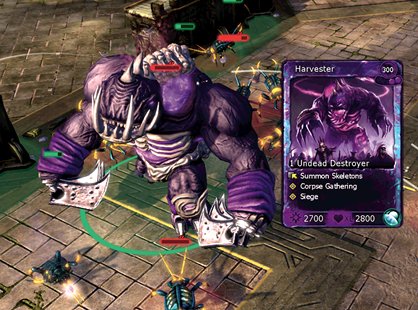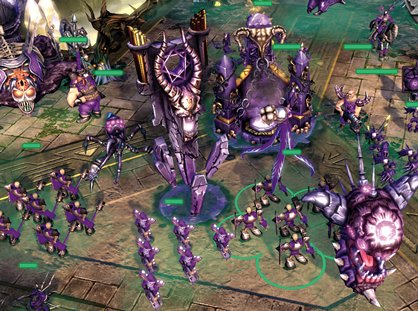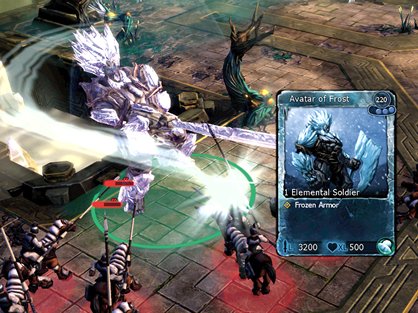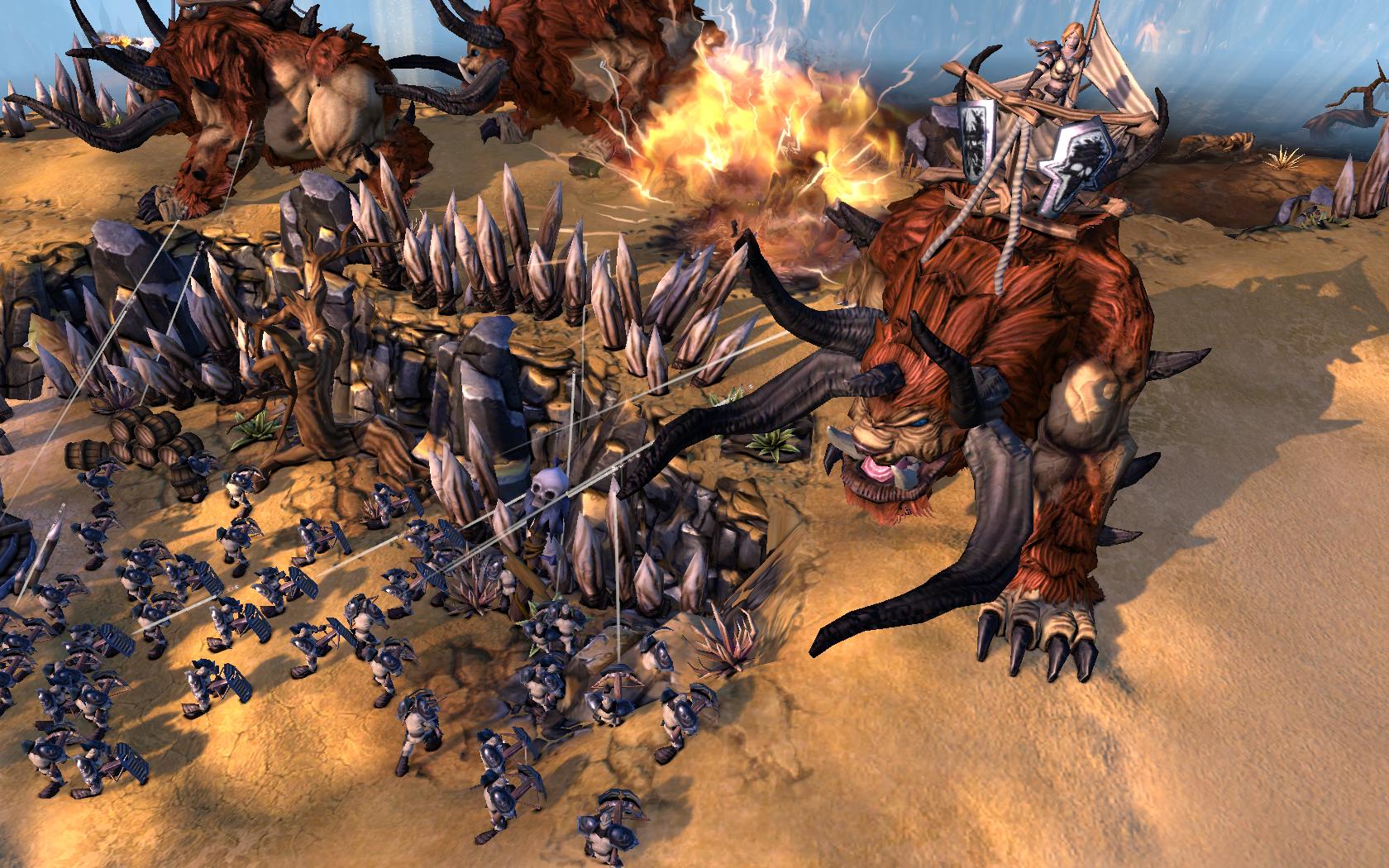GamesRadar+ Verdict
Pros
- +
Inspired build-your-own army system
- +
Creative unit designs
- +
Awesome co-op rampages
Cons
- -
Unbalanced multiplayer battles
- -
Meaningless mess of a plot
- -
Booster packs cost real cash
Why you can trust GamesRadar+
Last summer I sold a load of old Topps cards on eBay. What was striking was (a) the prices people were willing to pay for cards of shaggy-haired Belgian soccer players, and (b) how many decade-old unopened packets are up for sale. How could anyone resist tearing them open to see what’s inside? That’s the whole joy of it!

EA Phenomic, the German team behind this genre-blurring online RTS, understands this. Their whole business model is based on the assumption that folk love tearing open foil envelopes full of Mysterious Cardy Goodness. To create BattleForge, they’ve plucked the heart from Magic: The Gathering, stitched it into the muscular torso of Warcraft III, then attached the limbs and head of World of Warcraft. The resulting Fun Golem is both a deeply seductive and a faintly disturbing creature.
At the sulfurous core of the game is a fast, charismatic fantasy RTS brimming with great units and spectacular violence. The tempo is kept high by two things: the omission of traditional base-building, and a “spawn anywhere” unit-summoning dynamic. Though you need to capture and tap scattered power sources to fund army construction, troops themselves can materialize anywhere on a map as long as a living friendly unit is nearby.

It sounds like a recipe for total chaos: How can I plan or protect my base if entire armies are materializing out of thin air every few minutes? Oh wait - I don’t have a base. And, in addition to the power cost, there are cool-down periods and monument requirements. Battle-turning goliaths like the Colossus and the Dreadnought are out of reach until you’ve built four monuments (the pre-located sites for which are usually close to power sources) and dedicated them to the appropriate faction.
Now we arrive at the really ingenious part: All units and spells belong to one of four factions and are represented by virtual cards. Before a match begins, rather than choosing a side or having one thrust upon you, you build a deck of up to 20 cards. The more cards you own, the more deck combinations and tactics are possible.

Brilliantly, DIY army-smithing applies to both single-player and multiplayer. Whether you’re carving your way through the story or skirmishing with fellow skylords, you’ll be doing it with a force you fashioned. At the moment my current deck of choice - Slush II - is a mix of Frost and Fire. Early on in a fight, Master Archers and Thugs (orcs in football gear) wreak the majority of my havoc. Mid-game, I call upon Spitfires (magma-spewing sky galleons) and Tremors (stompy stonemen with mallet fists). In the final stages - assuming all is going to plan - Boom Brothers (goblin-crewed howitzers mounted on ogres) and Emberstrikes (fire-lancing geomorphs) shoulder most of the slaughter.
More info
| Genre | Strategy |
| Description | Ignore the messy plot, Battleforge's awesome co-op and build-your-own army system will have you emptying your wallet for booster packs. |
| Platform | "PC" |
| US censor rating | "Teen" |
| UK censor rating | "12+" |
| Release date | 1 January 1970 (US), 1 January 1970 (UK) |



